Unit9 Have you ever been to a museum?SectionA 3a-3c 课件(共22张PPT)
文档属性
| 名称 | Unit9 Have you ever been to a museum?SectionA 3a-3c 课件(共22张PPT) | 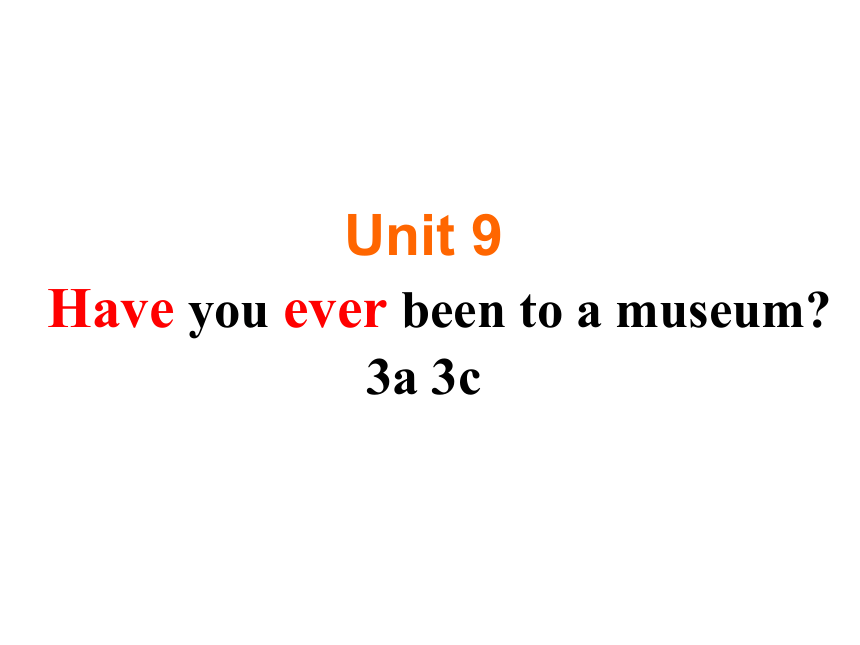 | |
| 格式 | ppt | ||
| 文件大小 | 4.4MB | ||
| 资源类型 | 教案 | ||
| 版本资源 | 人教新目标(Go for it)版 | ||
| 科目 | 英语 | ||
| 更新时间 | 2023-03-12 11:31:52 | ||
图片预览

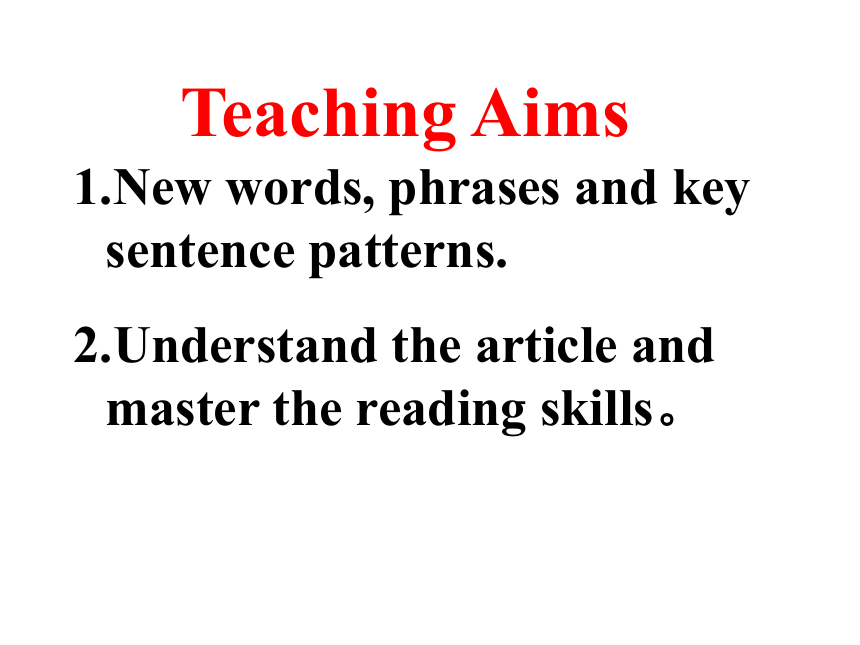
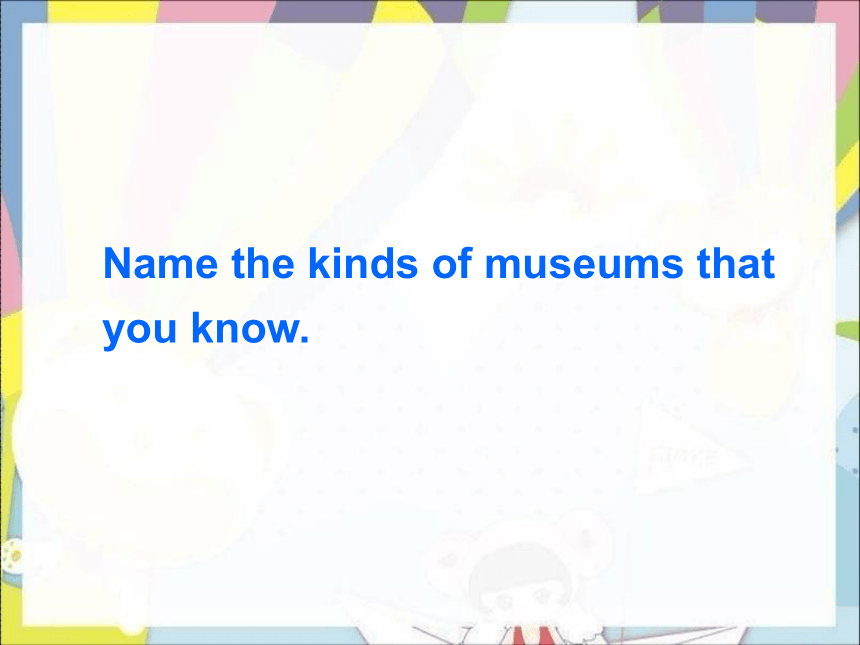
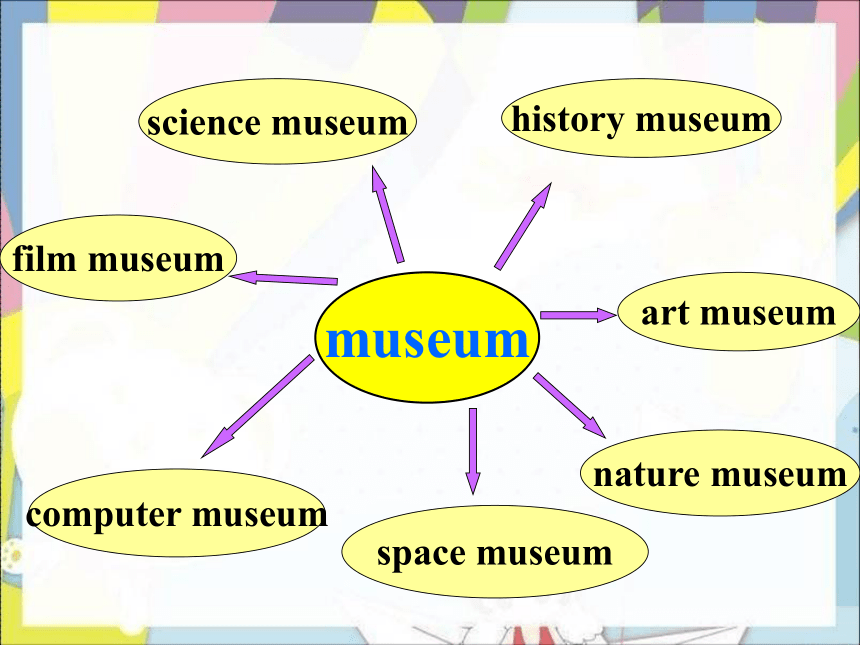
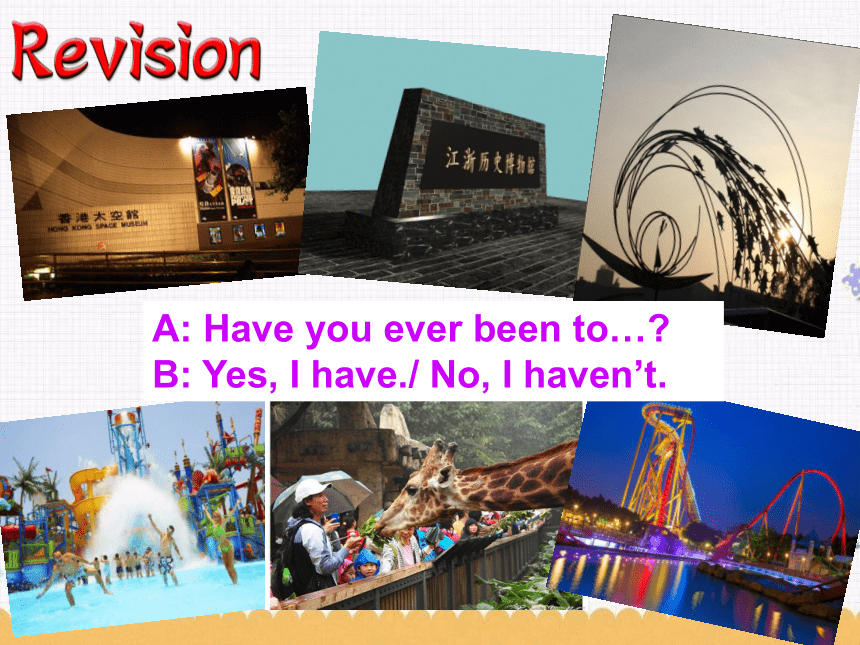
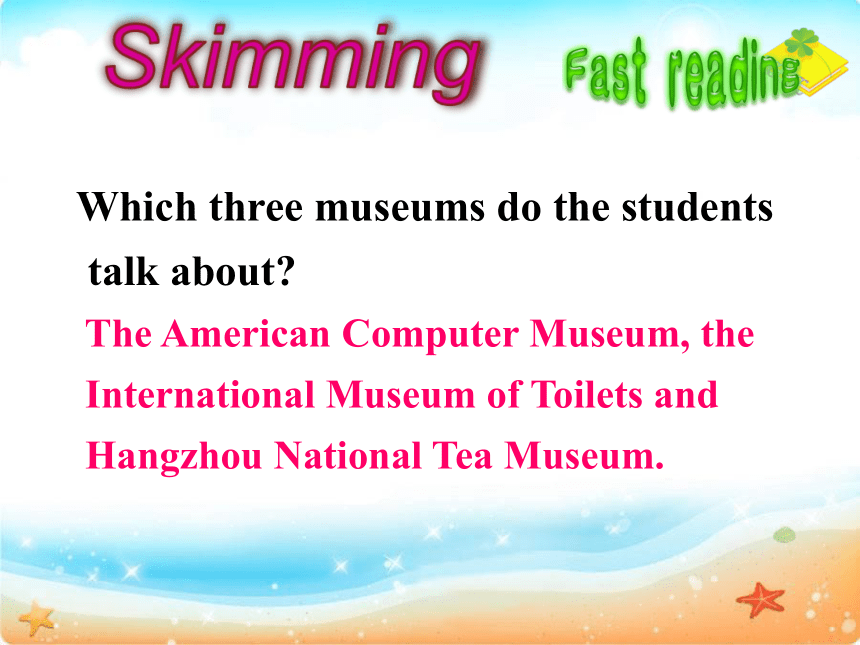
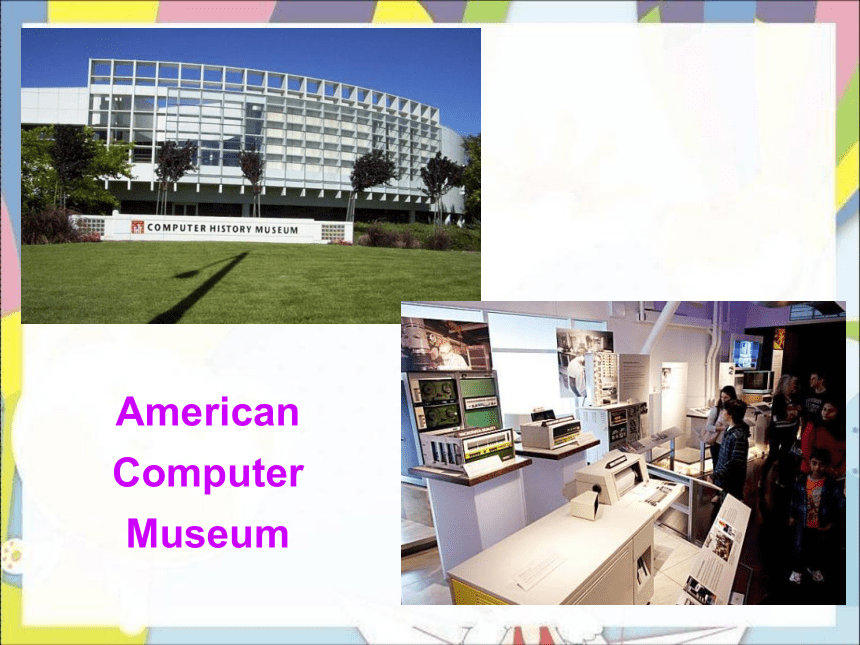
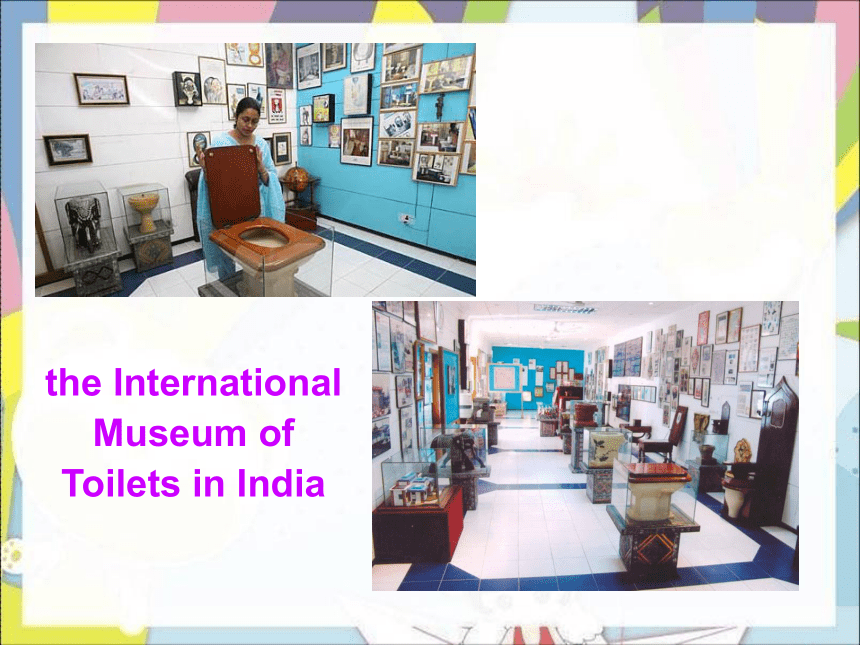

文档简介
(共22张PPT)
Unit 9 Have you ever been to a museum
3a 3c
Teaching Aims
New words, phrases and key sentence patterns.
Understand the article and master the reading skills。
Name the kinds of museums that you know.
museum
history museum
computer museum
art museum
nature museum
science museum
space museum
film museum
A: Have you ever been to…
B: Yes, I have./ No, I haven’t.
Which three museums do the students
talk about
The American Computer Museum, the
International Museum of Toilets and
Hangzhou National Tea Museum.
American Computer Museum
the International Museum of Toilets in India
Hangzhou National Tea Museum
( ) 1. American Computer Museum only has information about different computers there.
( ) 2. Ken thinks computers will do more work in the future.
( ) 3. International Museum of Toilets is a very unusual museum.
( ) 4. Linlin didn’t know why her grandpa loved drinking and collecting tea sets.
F
T
T
F
1. What does Ken say about the
American Computer Museum
2. What can we learn at the
International Museum of Toilets
3. Why is the Hangzhou National Tea
Museum a nice place to enjoy tea
4. What do you think is the most
interesting thing about each museum
1. What does Ken say about the
American Computer Museum
He says it is the most interesting museum he has ever been to.
2. What can we learn at the
International Museum of Toilets
We can learn the history and
development of toilets.
3. Why is the Hangzhou National Tea
Museum a nice place to enjoy tea
Because it’s a relaxing and peaceful
place near a lake.
4. What do you think is the most
interesting thing about each museum
Answers will vary.
Choose one of the three museums and talk about it.
First, take some notes about one of the museums.
Then write down some key words.
1. The American Computer Museum
2. The International Museum of Toilets
3. The Hangzhou National Tea Museum
You can also choose other museums you have been to
1. I wonder how much more computer will be able to do in the future.
不知道将来电脑还能够做些什么事情呢。
1)wonder 表示“ (对某事)感到疑惑;想要
知道;想弄明白;琢磨”,后面常接由what, how, who 或者if/whether引导的宾语从句。
2) 宾语从句中, 疑问结构应改成了陈述结构:
此句从句部分的原始结构是: How much more will computers be able to do in the future 是对陈述句Computers will be able to do (much) more in the future.(电脑将来能够做更多的事情。)的提问。
I just __________ they’ve arrived safely.
我就想知道他们是否安全抵达了。
I ___________ they’re getting on.
我想知道他们现在过得怎样。
I don’t know _________ lives.
我不知道他住在哪里。
wonder if
wonder how
where he
2. It also encourages governments and social groups to think about ways to…
encourage sb. to do sth.
鼓励某人做某事
My father encouraged me to take
part in the sports meeting.
译:____________________
____________________
父亲鼓励我参加运动会。
3. Watching the tea preparation is just as enjoyable as drinking the tea itself.
看沏茶的过程和饮茶本身一样令人愉快。
-able是一个典型的形容词后缀, 可加在动词之后, 表示“可…..的; 能够……的”。此处enjoyable(能使人快乐的; 令人愉快的) 便是一例, 再如:drinkable(可饮用的), washable(可洗的), readable(可读的), usable(可用的; 可使用的)等等。
1. match the words with its meaning.
progress
rapid
unusual
peaceful
improve
invented
make sth. better
become better
uncommon
quiet
made
quick
2. Write down these phrases in English.
1) 不同种类的 ______________________
2) 在将来_________________
3) 鼓励某人做某事_______________________
4) 以如此快的方式 ____________________
5) 学习关于… _____________
Summary
Unit 9 Have you ever been to a museum
3a 3c
Teaching Aims
New words, phrases and key sentence patterns.
Understand the article and master the reading skills。
Name the kinds of museums that you know.
museum
history museum
computer museum
art museum
nature museum
science museum
space museum
film museum
A: Have you ever been to…
B: Yes, I have./ No, I haven’t.
Which three museums do the students
talk about
The American Computer Museum, the
International Museum of Toilets and
Hangzhou National Tea Museum.
American Computer Museum
the International Museum of Toilets in India
Hangzhou National Tea Museum
( ) 1. American Computer Museum only has information about different computers there.
( ) 2. Ken thinks computers will do more work in the future.
( ) 3. International Museum of Toilets is a very unusual museum.
( ) 4. Linlin didn’t know why her grandpa loved drinking and collecting tea sets.
F
T
T
F
1. What does Ken say about the
American Computer Museum
2. What can we learn at the
International Museum of Toilets
3. Why is the Hangzhou National Tea
Museum a nice place to enjoy tea
4. What do you think is the most
interesting thing about each museum
1. What does Ken say about the
American Computer Museum
He says it is the most interesting museum he has ever been to.
2. What can we learn at the
International Museum of Toilets
We can learn the history and
development of toilets.
3. Why is the Hangzhou National Tea
Museum a nice place to enjoy tea
Because it’s a relaxing and peaceful
place near a lake.
4. What do you think is the most
interesting thing about each museum
Answers will vary.
Choose one of the three museums and talk about it.
First, take some notes about one of the museums.
Then write down some key words.
1. The American Computer Museum
2. The International Museum of Toilets
3. The Hangzhou National Tea Museum
You can also choose other museums you have been to
1. I wonder how much more computer will be able to do in the future.
不知道将来电脑还能够做些什么事情呢。
1)wonder 表示“ (对某事)感到疑惑;想要
知道;想弄明白;琢磨”,后面常接由what, how, who 或者if/whether引导的宾语从句。
2) 宾语从句中, 疑问结构应改成了陈述结构:
此句从句部分的原始结构是: How much more will computers be able to do in the future 是对陈述句Computers will be able to do (much) more in the future.(电脑将来能够做更多的事情。)的提问。
I just __________ they’ve arrived safely.
我就想知道他们是否安全抵达了。
I ___________ they’re getting on.
我想知道他们现在过得怎样。
I don’t know _________ lives.
我不知道他住在哪里。
wonder if
wonder how
where he
2. It also encourages governments and social groups to think about ways to…
encourage sb. to do sth.
鼓励某人做某事
My father encouraged me to take
part in the sports meeting.
译:____________________
____________________
父亲鼓励我参加运动会。
3. Watching the tea preparation is just as enjoyable as drinking the tea itself.
看沏茶的过程和饮茶本身一样令人愉快。
-able是一个典型的形容词后缀, 可加在动词之后, 表示“可…..的; 能够……的”。此处enjoyable(能使人快乐的; 令人愉快的) 便是一例, 再如:drinkable(可饮用的), washable(可洗的), readable(可读的), usable(可用的; 可使用的)等等。
1. match the words with its meaning.
progress
rapid
unusual
peaceful
improve
invented
make sth. better
become better
uncommon
quiet
made
quick
2. Write down these phrases in English.
1) 不同种类的 ______________________
2) 在将来_________________
3) 鼓励某人做某事_______________________
4) 以如此快的方式 ____________________
5) 学习关于… _____________
Summary
同课章节目录
- Unit 1 What's the matter?
- Section A
- Section B
- Unit 2 I'll help to clean up the city parks.
- Section A
- Section B
- Unit 3 Could you please clean your room?
- Section A
- Section B
- Unit 4 Why don't you talk to your parents?
- Section A
- Section B
- Unit 5 What were you doing when the rainstorm came
- Section A
- Section B
- Review of Units 1-5
- Unit 6 An old man tried to move the mountains.
- Section A
- Section B
- Unit 7 What's the highest mountain in the world?
- Section A
- Section B
- Unit 8 Have you read Treasure Island yet?
- Section A
- Section B
- Unit 9 Have you ever been to a museum?
- Section A
- Section B
- Unit 10 I've had this bike for three years.
- Section A
- Section B
